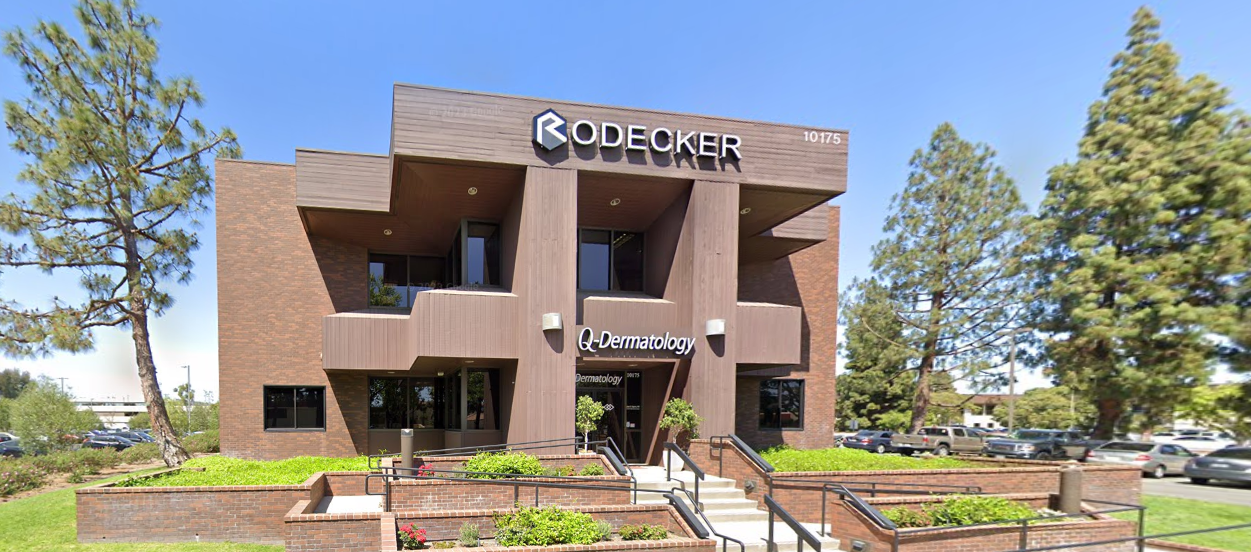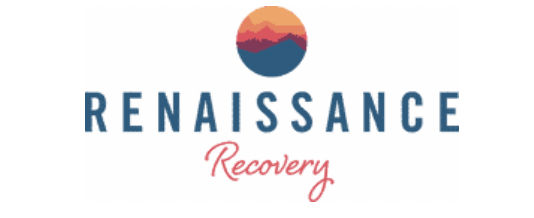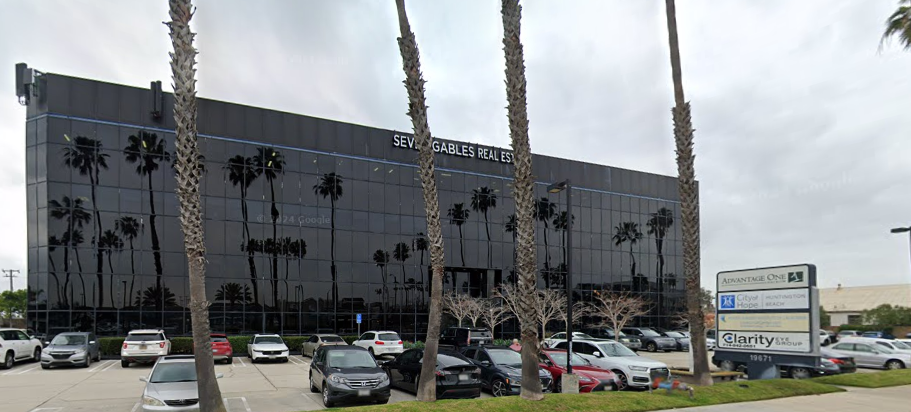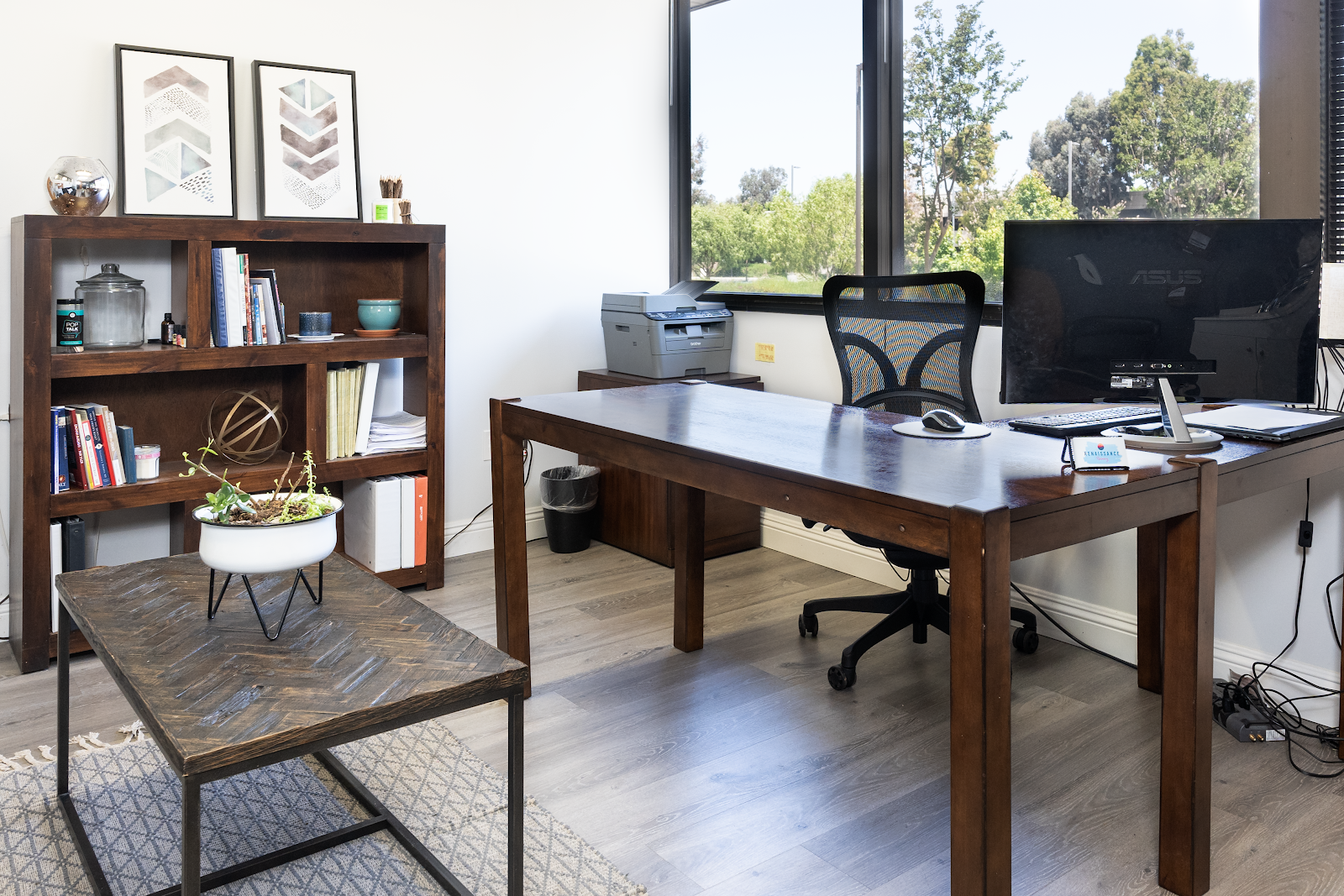Renaissance Recovery
Overview
Renaissance Recovery is a distinguished drug and alcohol treatment center situated within walking distance of the stunning beaches of Orange County, California. Led by masters-level clinicians, Renaissance Recovery employs evidence-based and holistic approaches to addiction recovery and dual diagnosis treatment, ensuring that every client receives the personalized care they need.
The center provides a structured, supportive, family-based environment where clients can grow and develop healthy habits and life skills. The program is designed to help clients live a life free from drugs and alcohol, fostering independence from negative influences. Focused on both young adults and middle-aged individuals, Renaissance Recovery teaches clients how to have fun and be sober. The program includes daily, weekly, and monthly activities, and a dedicated full-time staff helps coach clients through life's complexities.
Renaissance Recovery offers education, guidance, treatment options, relapse prevention, and recovery coaching. The center provides a variety of activities, including recreational therapy and educational classes such as Life Skills Education, anger management, budgeting, financial planning, and other workshops that enhance clients' knowledge of coping skills necessary for a successful sober lifestyle.
Clients at Renaissance Recovery work one-on-one with their therapists on various aspects of their treatment. The Partial Hospitalization Program (PHP) treats both mental health and substance use disorders, allowing clients to return home every night. The center utilizes a gender-specific, holistic approach to recovery, employing multiple therapeutic methods to heal the mind, body, and spirit simultaneously.
From detox to aftercare, every step in the addiction treatment process is crucial. Renaissance Recovery offers comprehensive care through its programs and partnerships, ensuring a seamless and effective recovery journey. Upon arrival, clients are greeted by a welcoming staff and vibrant sober community. Many of the founders and staff members have been through recovery themselves, creating an environment of meaningful support and understanding throughout treatment.
The prime coastal locations of Renaissance Recovery provide frequent opportunities for outings to world-renowned beaches and surrounding areas, including hiking, surfing, and downtown excursions.
Renaissance Recovery is accredited by The Joint Commission and was LegitScript verified in January 2021, underscoring its commitment to maintaining the highest standards of patient care and safety.
Renaissance Recovery at a Glance
Payment Options
- Cash or self-payment
- Private health insurance
- Self-pay options
Assessments
- Comprehensive mental health assessment
- Comprehensive substance use assessment
Age Groups
- Adults
- Seniors
- Young adults
Operation
- Private for-profit organization
Accreditations
The Joint Commission:

The Joint Commission's addiction and behavioral health accreditation signifies a facility's commitment to high-quality care. It involves rigorous evaluations and assessments of clinical practices, ensuring effective, evidence-based treatment. Accreditation showcases a dedication to continuous improvement and patient safety, instilling trust among patients, families, and healthcare professionals. It's a mark of excellence in addiction and behavioral health care.
LegitScript:

Only programs and services that successfully navigate a stringent application process launched in 2018 are granted LegitScript certification. This stringent process ensures that only reputable providers of mental health and co-occurring substance abuse treatment are eligible to be featured on Google's network while complying with HIPAA privacy laws.
Treatment At Renaissance Recovery

Conditions Treated
Mental health treatment:
Mental health facilities offer a safe space for individuals to get specialized care. Trained experts create personal plans using therapies, possibly including medication. The goal is to help individuals cope better and lead fulfilling lives, with constant support and a community feel.
Substance use treatment:
Substance use rehabilitation is a structured program aimed at assisting individuals in overcoming their dependencies on drugs or alcohol. Through a combination of medical detoxification, counseling, and various therapeutic approaches, these programs strive to address the physical and psychological aspects of addiction. The goal is to equip individuals with the knowledge, skills, and support necessary to attain lasting sobriety, while also working to identify and address the underlying issues contributing to substance misuse. By fostering a supportive environment, substance use rehabilitation centers provide a pathway towards a healthier, substance-free life.
Co-occurring Disorders:
Dual-diagnosis rehabs are usually the appropriate solution to treat co-occurring mental health and substance abuse disorders. These facilities typically employ medical and behavioral experts who use a range of interventions, together with the right healing environment, for you to achieve and sustain long-term recovery. Treatment usually includes evidence-based therapies (like cognitive behavioral therapy), recovery support meetings, 12-step facilitation, psychoeducation, skills training, and group therapy.
Alcoholism:
Alcohol addiction is a health problem where drinking takes control over a person's life. It affects how their brain thinks and acts, leading to strong desires to drink, bad feelings, sudden actions, and discomfort when not drinking. To help someone with this problem, there are treatments like detox, counseling, group support, and learning coping methods. While treatment can't completely cure the urge to drink, it helps people regain control of their lives and feel better overall.
Opioid Treatement:
Opioid addiction rehabilitation is a specialized treatment process tailored to address the unique challenges and complexities of opioid dependence, including drugs like heroin and prescriptions like oxycodone. The process typically begins with a medical detox to ease withdrawal symptoms, followed by therapeutic interventions to address the root causes of addiction. This holistic approach aims to provide individuals with the skills and support needed for long-term recovery from opioid use.

Levels Of Care
Partial Hospitalization Program:
A Partial Hospitalization Program (PHP) is a structured short-term intensive rehabilitation service primarily aimed at individuals with acute symptoms that are challenging to manage but do not necessitate round-the-clock care. PHPs typically run 3-5 days a week for about 6 hours each day, from 1 to 6 months, offering structured activities such as individual and/or group therapy. While some PHPs offer residential facilities allowing patients to stay overnight, others operate on a non-residential basis, enabling patients to return home each evening.
Intensive outpatient treatment:
IOP, or Intensive Outpatient, is a structured level of care for addiction, mental health, or other conditions. Unlike inpatient care, it allows individuals live at home and maintain daily responsibilities. They attend multiple weekly sessions totaling 9-20 hours, including individual and group therapy, family counseling, and skill-building classes for symptom management and relapse prevention.
Luxury Treatment:
Luxury rehab centers offer upscale treatment environments for individuals seeking recovery from addiction or other behavioral disorders. These centers combine top-tier medical and therapeutic care with lavish amenities, ensuring patients receive the utmost comfort and personalized attention. Often set in picturesque locations, these centers prioritize privacy, holistic well-being, and world-class facilities to facilitate a rejuvenating healing experience.
Outpatient:
Outpatient treatment at rehab centers provides adaptable therapy schedules, usually spanning 1-3 hours weekly, enabling participants to maintain their everyday routines while undergoing treatment. On the other hand, intensive outpatient programs require a more dedicated time investment, frequently around 9-15 hours a week, delivering a deeper therapeutic experience without the commitment of inpatient residency.
Outpatient detoxification:
Ambulatory Detox is a form of outpatient detoxification from substances like drugs or alcohol. In this model, patients undergo medically supervised detox by skilled clinicians, often in settings like clinics, healthcare facilities, or even their own homes. This method is typically more flexible and cost-effective compared to inpatient detox.
Detoxification:
Detoxification (detox) is the process of clearing the body of drugs or alcohol that an individual has consumed. The purpose of detox is to safely manage withdrawal symptoms when someone stops taking drugs or alcohol. It denotes a clearing of toxins from the body of the patient who is acutely intoxicated and/or dependent on substances of abuse. Detoxification seeks to minimize the physical harm caused by the abuse of substances.
Residential detoxification:
Residential Detoxification is a specialized and supportive program designed to help individuals safely and effectively withdraw from substances like drugs or alcohol within a secure and supervised residential setting. This comprehensive approach provides 24/7 medical and psychological support to manage withdrawal symptoms, reduce cravings, and promote a healthy transition to sobriety. Residential detoxification offers a structured environment where individuals can focus on their recovery journey while receiving personalized care to ensure a safe and comfortable detox process. It is often the crucial first step on the path to long-term addiction recovery.
Hospital inpatient detoxification:
Hospital Inpatient Detoxification is a comprehensive medical intervention designed for individuals who require intensive care and supervision while undergoing withdrawal from alcohol, drugs, or other addictive substances. This setting provides round-the-clock medical monitoring, ensuring the safety and well-being of patients as they transition through the acute phase of detoxification.
Intensive outpatient treatment:
Intensive Outpatient (IOP) is a form of structured therapy designed to support individuals in recovery from addiction, mental health disorders, or other medical conditions. Unlike inpatient or residential treatment, where patients live at the facility, IOP allows individuals to receive high-level care while still living at home and maintaining specific day-to-day responsibilities. Typically, patients in IOP programs attend sessions multiple times per week, often totaling 9-20 hours or more. These sessions can include individual therapy, group therapy, family counseling, and educational classes focused on skills and strategies for managing symptoms and preventing relapse.

Treatment Modalities
Cognitive Behavioral Therapy:
Cognitive Behavioral Therapy (CBT) is a widely practiced form of psychotherapy that seeks to address dysfunctional emotions, behaviors, and thoughts through a goal-oriented, systematic process. It encourages individuals to challenge distorted cognitions and change destructive patterns of behavior by promoting self-awareness and effective coping strategies. CBT is often used to treat a range of disorders including anxiety, depression, and stress, making it a versatile and practical therapeutic approach. Through enhancing an individual's capacity to manage life's challenges, CBT contributes to improved mental well-being and overall quality of life.
Dialectical Behavior Therapy:
Dialectical Behavior Therapy (DBT) for addiction treatment is a comprehensive cognitive-behavioral approach initially developed to treat individuals with borderline personality disorder. Adapted for addiction, DBT emphasizes the development of four core skills: mindfulness, emotion regulation, distress tolerance, and interpersonal effectiveness. Through individual and group sessions, patients learn to understand their triggers, manage negative emotions, cope with cravings, and improve relationships, all of which contribute to long-term recovery and reduced substance use.
Trauma-related counseling:
Trauma therapy delves into past traumatic events that might be influencing a client's current life experiences. Often, trauma serves as a significant precipitant or underlying cause of addiction. Such traumas can arise from childhood sexual abuse, domestic violence, growing up with a mentally ill parent, early parental loss, and experiences of sexual assault in teen or adult years, among other circumstances. Trauma therapy aims to aid the individual in processing and navigating beyond these traumas, guided by the expertise and empathy of skilled mental health specialists.
Holistic Treatment:
A holistic approach encompasses a "whole person" perspective in treatment, emphasizing the interconnectedness of mental, physical, and spiritual health. At its core, holistic therapy believes in the seamless integration of an individual's body, mind, emotions, and spirit. In the context of addiction recovery, this approach ensures that the entire person is catered to, rather than isolating a specific symptom or behavior. Holistic treatments aim to enhance the individual's complete well-being instead of merely addressing isolated issues.
Individual psychotherapy:
In individual therapy, a person engages in a one-on-one session with a qualified therapist or counselor. This therapeutic approach is crucial in successful substance abuse treatment because it delves into the underlying causes of addiction, addressing issues the individual may encounter in their familial, social, and professional or academic environments.
Group counseling:
Group counseling provides a supportive environment where individuals share personal experiences and insights, under the guidance of a professional counselor. It facilitates self-awareness, fosters interpersonal learning, and helps members work through personal and relational challenges. Through shared dialogue and reflection, individuals learn coping strategies, gain emotional support, and experience personal growth within a communal setting.
Couples/family therapy:
Whether it's a marriage or another committed relationship, intimate partnerships hold immense significance in one's life. Substance addiction profoundly impacts both partners, just as rehabilitation and recovery do. Couples therapy and other relationship-focused treatments play a crucial role in uncovering addiction triggers and fostering healthy habits to sustain sobriety.
Ancillary Services
Special Programs
- Clients who have experienced trauma

Additional Locations
Contact Information
DISCLAIMER: The facility name, logo and brand are the property and registered trademarks of Renaissance Recovery, and are being used for identification and informational purposes only. Use of these names, logos and brands shall not imply endorsement. BetterAddictionCare.com is not affiliated with or sponsored by Renaissance Recovery.




